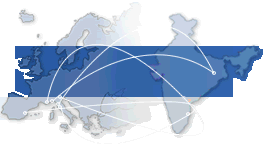


News |
EU, India, both with 23 official languages, sign joint declaration on multilingualismToday Mr Leonard Orban will sign a Joint Declaration on multilingualism with the Government of India, represented by the Hon. Minister of State Smt. Daggubati Purandeshwari. “India's experience in coping with linguistic diversity is unique in the world and I believe that the EU and India can learn from each other in this area .” said Leonard Orban, European Commissioner for Multilingualism This Joint Declaration is a follow-up to the EU-India Summit in Marseilles on 29 September 2008, where EU and Indian leaders committed themselves to developing a dialogue on the promotion of languages, intercultural dialogue and multilingualism. A first step towards this dialogue was achieved in December 2008 with the conference on “ Multilingualism and Cultural Dialogue in Globalisation ” that took place in New Delhi, India, in the context of the 2008 European Year of Intercultural Dialogue. The Conference was organised jointly by the European Commission, the French Embassy, under its Presidency of the European Union, the Indian National Knowledge Commission and the European Union of National Institutes for Culture (EUNIC-India Cluster). The University of Delhi graciously hosted the Conference on its premises. For more information on the Conference please see: http://ec.europa.eu/education/languages/news/news3134_en.htm With a population of approximately 1.1 billion people, India represents a unique example of ethnic, socio-cultural and religious diversity that brings with it a very rich linguistic diversity. According to the 2001 Census Report, there are 29 languages spoken by more than a million native speakers, 122 languages with at least 10,000 speakers and another 234 languages spoken by a smaller number. The Indian Constitution declares Hindi to be the official language of the union. English may be used for official purposes and the country has 22 official regional languages. This rich linguistic diversity has been a fact of life throughout India's history and it is considered locally to be quite natural. This similarity in the linguistic landscape with the European Union makes India a privileged interlocutor for Europe in the field of multilingualism. This Joint Declaration makes provision for regular debate and exchange of good practices. Source: The European Commission's Delegation |
Partners |











